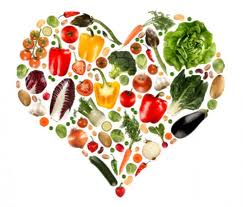Once suffering from acute kidney failure, the patient is treated to restore kidney function and prevent fluid and waste from building up in the body while the kidneys heal. The kidney failure diet concerns so much to the outcomes of treatment. The amount of liquid you eat (such as soup) or drink will be limited to the amount of urine you can produce. You will be told what you may and may not eat to reduce the buildup of toxins normally handled by the kidneys. Your diet may need to be high in carbohydrates and low in protein, salt, and potassium.
The amount of liquid you eat (such as soup) or drink will be limited to the amount of urine you can produce. You will be told what you may and may not eat to reduce the buildup of toxins normally handled by the kidneys. Your diet may need to be high in carbohydrates and low in protein, salt, and potassium.
Here are some overall tips for those who have kidney problems.
- Low calorie diet: Foods high in calorie will increase your blood pressure. High blood pressure can put damaged kidneys into an even worse state. Many snack foods high in calorie like potato chips have reduced calorie versions. Other snack foods have versions with no calorie, such as unsalted popcorn and pretzels. While cooking, forgo salt in place of other seasonings such as Italian herbs.
- Low protein: Your kidneys must work harder to deal with the amount of protein waste generated by your body. By decreasing your protein intake, you are giving your kidneys a rest. Replace protein-heavy foods in your diet such as meat, eggs, seafood, and dairy products with all-around nutritious substitutes such as vegetables, grains, and fruit.
- Low sodium diet: Foods high in sodium will increase your blood pressure. High blood pressure can put damaged kidneys into an even worse state. Many snack foods high in sodium like potato chips have reduced sodium versions. Other snack foods have versions with no sodium, such as unsalted popcorn and pretzels. While cooking, forgo salt in place of other seasonings such as Italian herbs.
- Low potassium diet: Since your body’s main way of removing potassium from its system is through its kidneys, damaged kidneys will have a hard time handling large amounts of potassium on their own. The best solution to this problem is to reduce the amount of potassium consumed in your diet. Many fruits and vegetables contain high amounts of potassium. Some safe fruits and vegetables to add to your diet are berries, broccoli, cauliflower and cabbage.
- Low phosphorus diet:An excessive amount of phosphorus can lead to total kidney failure. It is important for you to avoid dairy products, nuts, beans and beer. Some suitable substitutes are sherbet, decaffeinated beverages and nonalcoholic beverages.
- Fluid restriction: you should be careful not only about your intake of fluids, but also your intake of foods containing large amounts of fluids, like fruits. In your diet, replace juicy fruits such as apples, grapes and oranges with drier or dried fruits like raspberries, prunes and apricots.
- Calcium supplements and Vitamin B supplements: this should be directed by doctors and medical experts.
